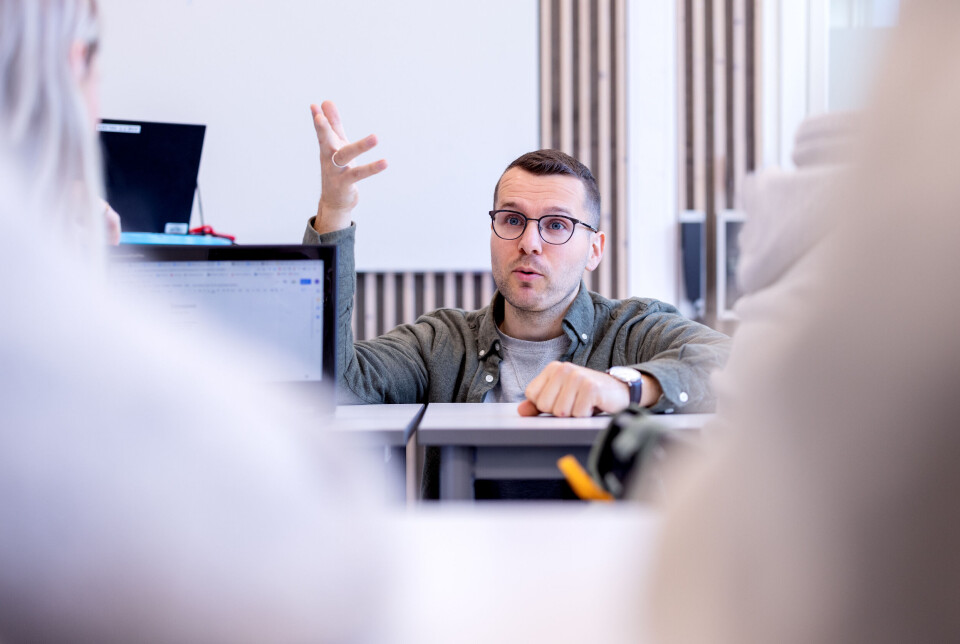Opinion:

Teachers lack authority. Could coaching be a solution?
OPINION: Despite political initiatives spanning four decades in the form of countless national, regional and local efforts to support teacher leadership in the classroom, we have not succeeded well enough.
Minister of
Education Kari Nessa Nordtun has repeatedly highlighted that teachers must be
given more authority in the classroom. Research, political documents and school
staff agree with the minister about the need and have done so for several
decades.
Many good measures and initiatives have been implemented. So what is the next move if we have not succeeded well enough so far? The minister hasn’t really said much about this.
Easy on paper, difficult in practice
Classroom management and relationships between teachers and pupils play a key role regarding teachers’ authority. The Norwegian school system has made efforts and developed practices in these areas that have yielded results – results that are utilised.
Studies show that as a group, Norwegian teachers are among the most skilled in the world in these areas. This is thanks to the efforts that the Norwegian school system has put in over several decades. We have succeeded to a large extent, but not well enough. Tasks can be difficult to implement in practice.
Digital meetings between teachers and coaches provide the potential to train coaches and reach teachers across the country
«We will
listen to the teachers», says the Minister of Education. We have already done
that, and we have listened to the pupils. Since the mid-1990s, the Centre for
Learning Environment has asked teachers and pupils about teacher leadership in
the classroom and their experiences regarding authority.
Together with tens of thousands of teachers and pupils in primary and secondary schools, we have gathered knowledge about teacher authority through various research projects.
Classroom management has been key. This has provided Norwegian schools and municipalities with an unusually solid platform of knowledge for establishing authority. Together with school staff and municipalities, we have developed and tested the effects of practices to strengthen the authority of teachers.
However, it has not been enough. Despite the fact that Norwegian teachers as a group are very skilled, there is too much variation between classrooms.
Two priority areas in particular that need to be focused on
The extensive research identifies two areas where we have not succeeded well enough: We need more differentiated professional development for teachers. In addition, we need more expertise on implementation, specifically how to work systematically and purposefully so that research-based initiatives produce the intended results.
Over the course of four decades, the typical efforts to strengthen teachers’ classroom management and authority have included initiatives involving the entire school staff, such as professional development seminars and/or work in small groups. School-wide initiatives have been rooted in the need for competence among all teachers.
These initiatives have provided us with teachers who have the best competence as a group, but they have not been sufficient in developing good practices in all classrooms. If we want to succeed in strengthening authority, we need to supplement these efforts with individual teacher support and measures that are based on specific classroom environments. One example of additional measures is coaching.
A great need for coaching
With support from the Research Council of Norway, we are now testing individual video-based coaching together with 100 teachers and their pupils at 12 upper secondary schools in Rogaland and Møre og Romsdal as part of the INTERACT research project. The aim of the coaching is to strengthen emotional support, classroom organisation and academic support, all of which are key areas for experiencing authority.
The feedback from teachers is unanimously positive. The teachers are very satisfied with the discussions they have with the coaches they work with throughout the school year. We have met a need among teachers for support in addressing specific challenges in their own classrooms.
Digital meetings between teachers and coaches provide the potential to educate coaches and reach teachers across the country. This provides teachers on an island in Finnmark with the same opportunities for professional development as teachers living near universities in larger cities.
The offer can be included in existing national support schemes for professional development in the education sector. As a result, there is no need for new and expensive support schemes. It involves working a little differently, not necessarily more.
The best of both worlds
Coaching should not replace, but rather supplement and complement school-wide initiatives; for teachers with a special interest in the topic, for newly educated teachers, for teachers who, despite years of success, face a new class that challenges their authority, or for teachers who want to further develop their own practice for other reasons.
The measure itself might be excellent and effective, but if its implementation is not good enough, it will fail to produce results.
A coach can
function much like a trainer in athletics or ski jumping, where video recordings
are made to identify areas that can be perfected. This is not because one is
unable to master things, but because one wants to continue developing. This
offer is currently not available to most teachers.
Inadequate knowledge about implementation
The challenge with coaching, and all other initiatives in schools, is to work purposefully and systematically to a sufficient degree over a long enough period so as to establish lasting competence. It is all about the implementation. Simply put: the measure itself might be excellent and effective, but if its implementation is not good enough, it will fail to produce results.
National and international research shows that this is one of the biggest challenges in schools. Even though this is slowly but surely changing, we still don’t have enough competence in schools on how to succeed with the initiatives we implement.
How bad can it get? Really bad. Being a teacher is a tough job at many schools around the country, but we have still succeeded to a large extent. In order to be even more successful, we must innovate without discarding the good work that has already been done. Then things can get (even) better.
Further reading:
Share your science or have an opinion in the Researchers' zone
The ScienceNorway Researchers' zone consists of opinions, blogs and popular science pieces written by researchers and scientists from or based in Norway. Want to contribute? Send us an email!






























